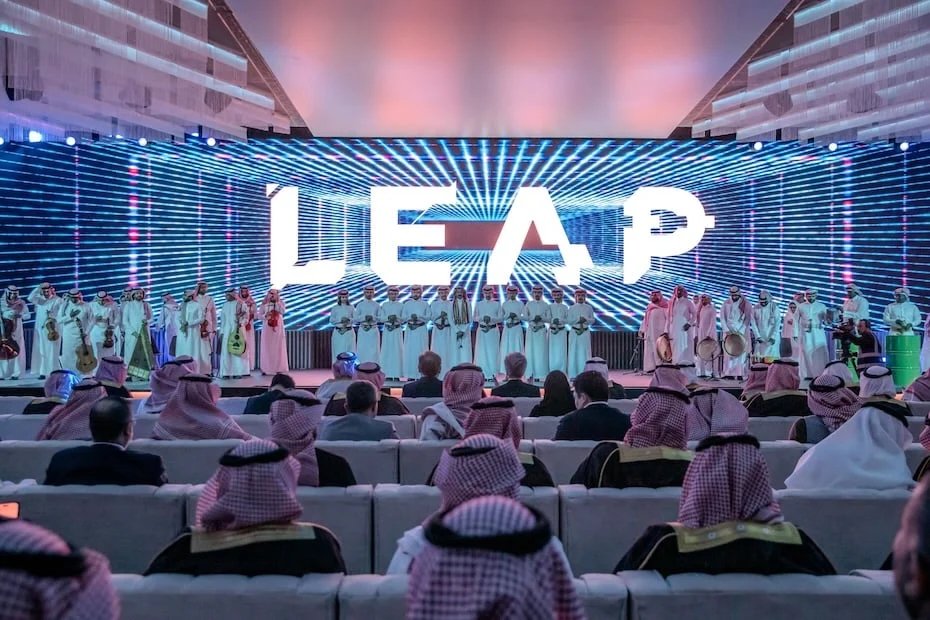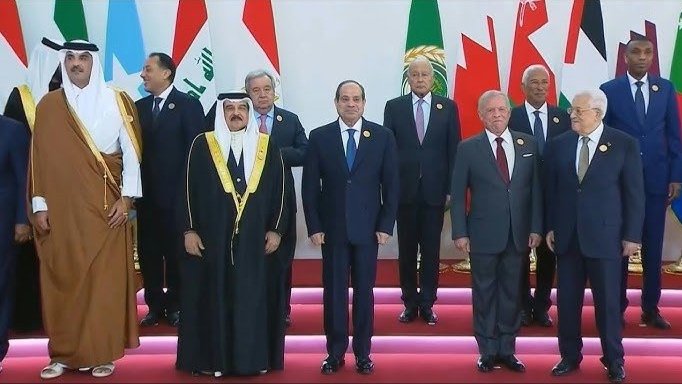Our Insights
Featured Posts Selected by Our Experts
Explore all of our Insights, Interviews, Commentary, and More
Media Type

Talking Points | Saudi Arabia’s AI Ambitions, Strategic Alliances, and the Evolving Regional Tech Landscape
Saudi Arabia’s LEAP 2025 conference announced $14.9 billion in technology investments, marking a significant push toward advancing the Kingdom’s AI and digital infrastructure. While these investments align with Riyadh’s Vision 2030, their emphasis on AI, cloud computing, data centers, and semiconductors signals a deeper strategic shift. Saudi Arabia is not merely acquiring technology—it is positioning itself as a regional powerhouse in digital infrastructure.

Talking Points | Beyond The Conflict, The Gaza Reconstruction Plan and Its Global Impact
Following the destruction in Gaza, two competing visions for its future emerged. The Trump administration initially proposed placing Gaza under U.S. control, forcibly relocating its Palestinian residents, and transforming the area into a luxury destination. Framed as a long-term solution, this plan was widely condemned as a violation of international law, dismissing Palestinian sovereignty and ignoring regional security complexities.

Saudi Arabia's Opportunity to Lead the Way in Global Biodiversity Protection
Saudi Arabia is rediscovering its natural assets. From the coral reefs of the Red Sea to the sweeping dunes of the Empty Quarter, the Kingdom is home to an impressive array of ecosystems and biodiversity. With this renewed focus on its natural heritage comes an unparalleled opportunity: to emerge as a global leader in protecting and valuing nature.

Talking Points | Driving Digital Transformation: Saudi Arabia's Giant LEAP
Saudi Arabia’s Vision 2030 is a comprehensive strategy to diversify its economy and solidify its position as a global technology and innovation hub. A cornerstone of this vision is the development of a world-class digital infrastructure to support both public and private sector transformation. Key investments are being made in AI, cloud computing, smart cities, and cybersecurity.

Talking Points | Foundations for the Future: Saudi Arabia’s Infrastructure Leap
Saudi Arabia is accelerating its infrastructure transformation with an ambitious vision for the future. In 2024, the Kingdom allocated $17.3 billion to infrastructure development, with spending projected to rise to $21.3 billion by 2025. Central to this transformation are monumental projects that aim to redefine urban development, transportation, and sustainability.

Talking Points | Syria’s New Cabinet: A Free-Market Vision Amid Uncertainty
Syria’s interim government, formed after the collapse of the Assad regime, has announced plans to transition to a free-market economy. Led by Prime Minister Mohammed al-Bashir and backed by Hayat Tahrir al-Sham (HTS), the administration is dismantling decades of state-controlled trade practices.

Talking Points | From Beijing to the Bosphorus: New Opportunities in China - Türkiye Trade
Türkiye-China economic relations continue to strengthen as Turkish Treasury and Finance Minister Mehmet Simsek wrapped up a visit to Beijing on November 8. There he had a series of high-level meetings with China’s government and financial leadership, including Vice President Han Zheng, Vice Premier Zhang Guoqing, and leaders from ICBC, Bank of China, and Asian Infrastructure Investment Bank (AIIB).

Talking Points | Trump's Return: MENA Reactions, Regional Dynamics, and Economic Outlook
In the MENA region, leaders reacted to Trump’s win with cautious optimism and pragmatism, signaling both hope for continuity and wariness about Trump’s unpredictability.

Lost Treasures: Crisis and Guardianship
For centuries, the looting and trafficking of antiquities have never ceased. Yet the strength humanity shows in safeguarding its heritage is no less than the creative power of its ancestors. At the 4th Dialogue of the C.E.A. Museums Cooperation Initiative, Deborah Lehr, Chair and CEO of Basilinna and Founder of the Antiquities Coalition, and Tess Davis, Basilinna and Antiquities Coalition Executive Director, both focused on the astonishing creativity of museums as guardians of culture.

From the Middle Kingdom to the Saudi Kingdom: Opportunities Abound
As China's economy slows, Chinese firms are seeking new global opportunities to market their products and build their brands.






